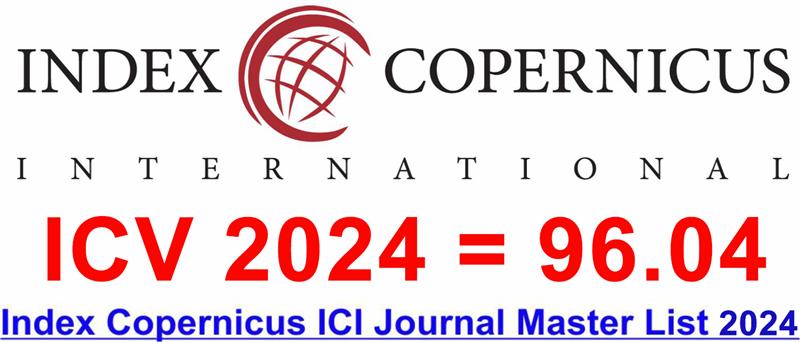Implementation of Digital Educational Technology: Issues for Managerial Consideration in Nigeria's Public Sector
DOI:
https://doi.org/10.60072/ijeissah.2024.v3i01.002Abstract
This work investigated Integrating Artificial Intelligence with Cloud-Based Records Management Opportunities and Challenges in Nigeria's Public Sector in Akwa Ibom State. Four research questions and four hypotheses guided the study. The descriptive survey design was adopted. Data was collected from respondents in three public sector departments in Akwa Ibom State. The population of the study comprised 950 employees in these three departments. A sample size of 280 respondents was determined using Slovin’s formula with a 5% margin of error. A 32-item questionnaire titled Integrating Artificial Intelligence with Cloud-Based Records Management was developed by the researcher and administered to the staff in the sample of the population. Descriptive statistics were used to analyse and describe the data. Inferential statistics were also used to investigate the relationships between the independent and dependent variables and to test hypothesised relationships. The findings revealed that the level of implementation of cloud-based systems is low to medium, and the lack of appropriate supporting IT resources is the most significant barrier to AI implementation. However, results showed that respondents held positive perceptions towards AI implementation and noted vast possibilities for enhancing productivity and decision-making in records management. Some of the potential difficulties are the shortage of qualified human capital, high costs related to implementation, and the possible resistance of the staff to change. Thus, the study concludes and recommends that despite the awareness of the multiple opportunities offered by AI applications in PRM, major infrastructural and skill-based barriers must be overcome.
Keywords:
Artificial Intelligence, Cloud Computing, Developing Countries, Digital Transformation, E-Government, Information Technology Adoption, Nigeria, Public Administration, Public Sector, Records ManagementReferences
Abdulrahman, A. B. (2015). Management of university records for effective administration of universities in North Central Nigeria. International Journal of Library and Information Science, 7(3), 47-54. DOI: https://doi.org/10.5897/IJLIS2014.0529
Adu, K. K., & Ngulube, P. (2017). Key threats and challenges to the preservation of digital records of public institutions in Ghana. Information, Communication & Society, 20(8), 1127-1145. DOI: https://doi.org/10.1080/1369118X.2016.1218527
Asogwa, B. E. (2012). The challenge of managing electronic records in developing countries: Implications for records managers in sub Saharan Africa. Records Management Journal, 22(3), 198-211. https://doi.org/10.1108/09565691211283156
Davis, F. D. (1989). Perceived usefulness, perceived ease of use, and user acceptance of information technology. MIS quarterly, 319-340. DOI: https://doi.org/10.2307/249008
Makhlouf, K. (2024). Advancing Ethical and Responsible AI: Exploring Fairness, Privacy, and Explainability through Causal Perspectives (Doctoral dissertation, Institut Polytechnique de Paris). https://theses.hal.science/tel-04767331/
Mell, P. (2011). The NIST Definition of Cloud Computing. National Institute of Standards and Technology NIST Special Publication, 800-145.
Mohammed, K. (2023). AI in cloud computing: Exploring how cloud providers can leverage AI to optimize resource allocation, improve scalability, and offer AI-as-a-service solutions. Advances in Engineering Innovation, 3, 22-26. DOI: https://doi.org/10.54254/2977-3903/3/2023035
Mosweu, O., Bwalya, K. J., & Mutshewa, A. (2017). A probe into the factors for adoption and usage of electronic document and records management systems in the Botswana context. Information development, 33(1), 97-110. DOI: https://doi.org/10.1177/0266666916640593
Akinola, S. A. (2023, December). Capabilities and Apparent Implications of Artificial Intelligence (AI) Adoption in Nigerian Academic Libraries. In University Library at a New Stage of Social Communications Development. Conference Proceedings (No. 8, pp. 283-289). DOI: https://doi.org/10.15802/unilib/2023_293813
Singh, J., Mansotra, V., Mir, S. A., & Parveen, S. (2021). Cloud feasibility and adoption strategy for the INDIAN school education system. Education and Information Technologies, 26(2), 2375-2405. DOI: https://doi.org/10.1007/s10639-020-10352-8
Souley, B., & Aniobi, D. E. (2014). A Framework for Mobile Education System for Higher Institutions in Nigeria. Journal of Software Engineering and Applications, 7(10), 791. DOI: https://doi.org/10.4236/jsea.2014.710073
Venkatesh, V., & Davis, F. D. (2000). A theoretical extension of the technology acceptance model: Four longitudinal field studies. Management science, 46(2), 186-204. DOI: https://doi.org/10.1287/mnsc.46.2.186.11926
Venkatesh, V., Morris, M. G., Davis, G. B., & Davis, F. D. (2003). User acceptance of information technology: Toward a unified view. MIS quarterly, 425-478. DOI: https://doi.org/10.2307/30036540
























